Kashmir valley is in the throes of yet another cycle of mass protests against the Indian rule. But this time, it is neither for an extrajudicial killing by the forces or transfer of land to an Indian federal body.
The recent spate of protests that has already left 41 civilians dead were triggered by the killing of a popular and social media savvy Hizbul Mujahideen militant commander Burhan Muzaffar Wani on July 8.
In his hometown Tral, the flow of mourners pouring in at the gate of Wani’s home hasn’t abated despite strict curfew.
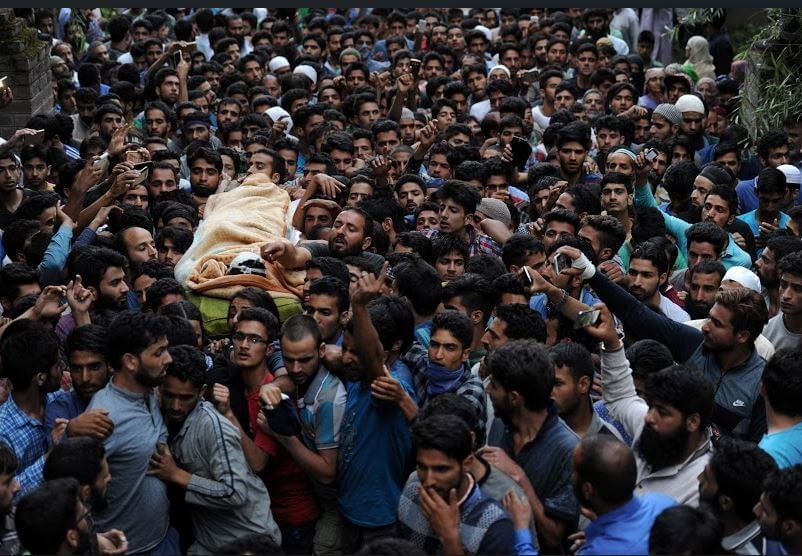
ScoopWhoop caught up with Burhan Wani’s father, Muzaffar Ahmad Wani, who is a government school principal, early morning at his home in Tral.
- ScoopWhoop: Your son, a militant, is dead. Do you have any regrets?
Muzaffar Wani: Burhan had chosen the path of Allah and he’s returned to Him. I am not sad at his death. Everyone has to die; only the ways differ. I knew his time was coming. He was a militant for only six years, but he created so much space for himself in this short time that he became a symbol of resistance.
People are thronging my home to express their love for Burhan. I know there are many more who might have wanted but couldn’t come due to the curfew. It should open the eyes of the Indian government.
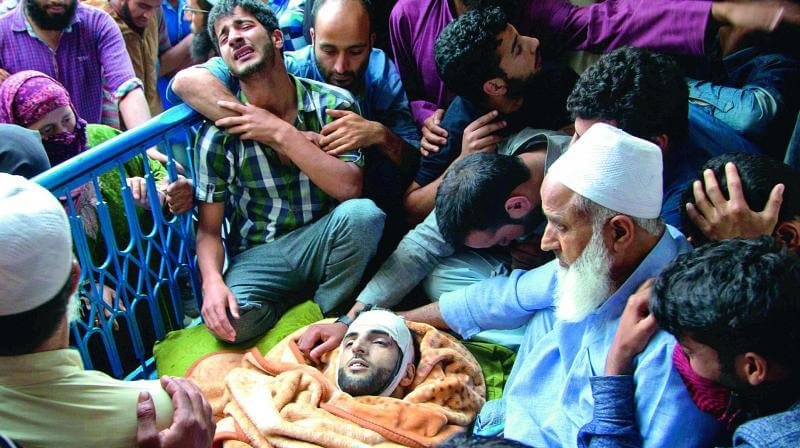
- Were you expecting this huge reaction to his killing?
When lakhs of people came out to attend Burhan’s funeral, it was a testimony of their support to the cause Burhan laid his life for. Burhan was a Kashmiri who had experienced oppression and humiliation like any other Kashmiri.
His martyrdom has also rejected the theory of mainstream politicians who would sell votes of Kashmiri people to claim legitimacy for the Indian rule in Kashmir. The number of people in Burhan’s funeral has showed which side people really belong to.
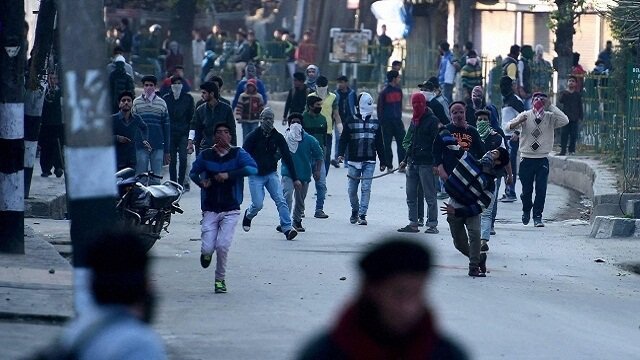
- How did your life change when Burhan became a militant?
I hadn’t expected that my life will take this turn. Ever since Burhan became a militant, I and my other martyred son Khalid were continuously harassed by police and army. Our phones were tapped and seized. Our house used to be cordoned by army and Special Task Force every night, from evening till early morning.
My job also suffered. For months, I was called to Srinagar’s Cargo police station and was kept there from morning to evening for no reason. One day, I was also locked up in a cell. Khalid had to give his attendance at Awantipora police station.
I was also transferred to a far-flung area in South Kashmir’s Shopain district where I served for two-and-a-half years. It was a punishment posting.
The harassment at our house was such that no relative dared to stay at our place for a night. Whenever Indian Prime Minister Narendra Modi or any politician was visiting the state, we were put behind bars.
When the phase-wise assembly elections were being conducted in the state, I was kept in prison for a month.
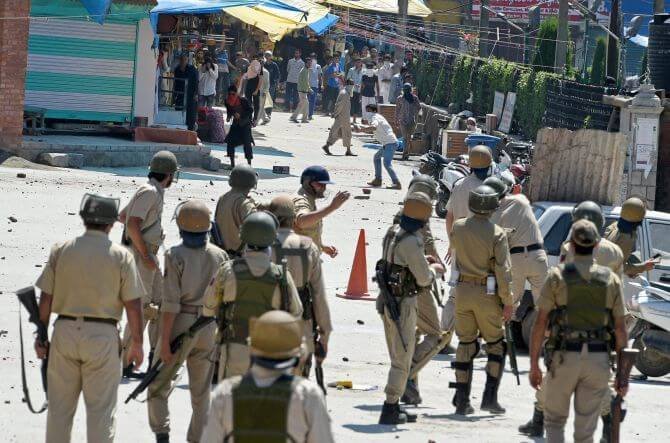
- Will this create more Burhans as they are saying?
I am not a leader. Neither can I tell anyone to pick up gun. I just want to tell people that our struggle has entered a decisive phase. My appeal for them would be to remain steadfast and patient at this juncture.
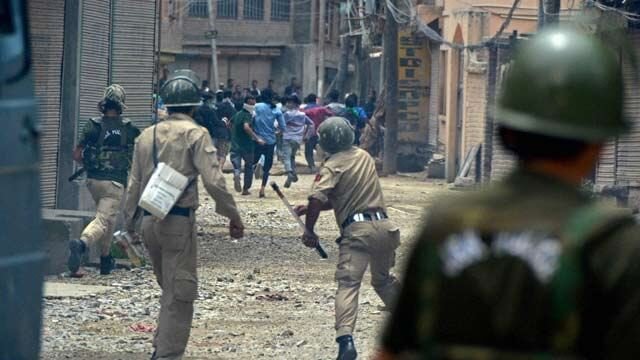
- Did you ever approach your son after he became a militant?
I didn’t. I knew I was being monitored and was under surveillance. I didn’t want to become a path for army and the police that would lead them to Burhan.
- There’s an often-repeated story that Burhan was beaten up by police and SOG men for no reason way back in 2010 and that ultimately became a motivation for Burhan to become a militant. What changes did you see in Burhan after that incident while he was still at home?
The incident was a trigger, but Burhan had a volcano boiling inside him for quite some time. After he was beaten up, he would regularly tell us that he would be joining militants soon. During 2008 and 2010 uprising, Burhan didn’t pelt a single stone.
He was a 15-year-old boy. For almost 15-20 days after joining militant ranks, I thought he would come back. He didn’t.
(Feature Image Source: twitter/@htTweets and PTI)

















